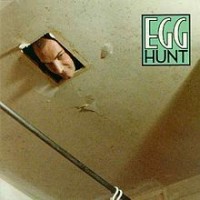In the Mid 80’s, the punk and hardcore landscape was a different scene than it was just a couple of years earlier. Many bands broke up (Minor Threat), had a multitude of line-up changes (Circle Jerks), or just decided they didn’t want to play the music they started with (Black Flag). Ian MacKaye is stated as saying that he “Didn’t check out on Hardcore, but Hardcore check out” on him. Whatever the reason is, the hardcore scene in 1985 and 1986 had come and gone. Dubbed the Revolution Summer in Washington D.C., the scene became a lot more socially aware, speaking out against sexism, slam dancing, and violence. Bands we’re discovering themselves, progressing, and eventually spawning what could be considered the first and early wave of “emo”. In other words, everyone grew up.
In 1986, Ian MacKaye and former Minor Threat drummer Jeff Nelson took a trip to England. What was to be a business trip, turned into an impromptu one off recording session with John Loder, who was a producer for Crass, Shellac, PJ Harvey and more. On paper, ½ of Minor Threat in the studio with Loder, would sound like a making for a throwback to a faster and simpler time. Instead, we get the 2 song release from Egg Hunt, named because they recorded the album over Easter. While this certainly lacks any hardcore punch, what it absolutely does is allow Ian to record guitar for the first time, and would no doubt be the gateway to his later band, Fugazi. The A Side track “Me and You” is droney, reverbed soaked guitar affair, with the song title just repeated, with some spoken word throughout. The B Side, “We All Fall Down”, brings back a little more of the familiar. A song that was an Embrace (Ian’s last band) reject, comes to full form here, and contains the trade mark Ian vocal style and shout that could easily have fallen into an early Fugazi record.
A year after Egg Hunt released this 7 incher, Ian would go on to form his 2nd and arguably more popular band Fugazi, and would once again change the way bands and business would operate. Proving you could make a scene in the early 80’s, the late 80’s would find Fugazi having fixed and affordable ticket prices, denying huge major label funding during the craze of the 90’s, and also not having T shirts and merchandise.
